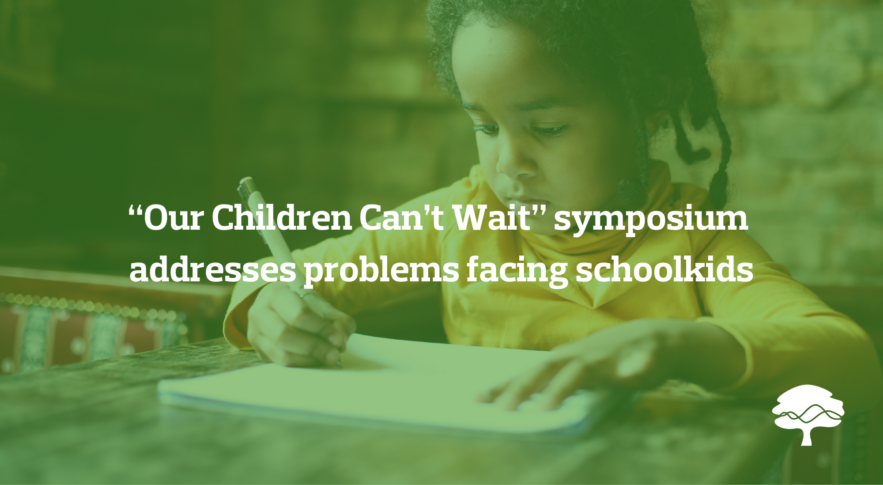In March, the School of Human Development and Education, in collaboration with the UCLA Center for the Transformation of Schools (CTS) and the Pasadena Unified School District, hosted a symposium titled “Our Children Can’t Wait: Ensuring Equity for All.”
The daylong event featured a keynote from CTS Executive Director Joseph Bishop, Ph.D., author of “Our Children Can’t Wait: The Urgency of Reinventing Education Policy in America,” a book that explores how the unstable conditions children may experience outside of school can hold them back.
The symposium featured several breakout sessions, including two facilitated by Pacific Oaks College faculty: Eugenia Rodriguez, Psy.D., from the Department of Cultural & Family Psychology; and Carlene Fider, Ph.D., from the Department of Human Development and Education.
Empathy and Inclusivity in the Classroom Nurture Belonging
Dr. Rodriguez says she chose her topic, “Building Emotional Intelligence and Empathy in Children,” to address the importance of understanding how children develop emotional intelligence. “I talked about what emotional intelligence is and how its developed,” she says, “and I explored what empathy is, the steps to build empathy, and the importance of these skills.”
The development of emotional intelligence is a key component of learning for young children in the classroom, according to Dr. Rodriguez. “Children who feel wanted, feel understood, and feel heard do better in schools,” she says.
Because improved performance in school can lead to greater opportunities in life, establishing a sense of belonging and success, particularly for students in lower income neighborhoods and children of color, is essential. Dr. Rodriguez says, “Feeling included in spaces where these children would feel othered will assist them in moving forward in their education.”
Parental Involvement Is Critical for Student Success
As part of her talk, “Empowering Parents,” Dr. Fider focused on the perplexing issue of high absenteeism in public schools. “When we compare with the two years prior to the pandemic and the two years after, there’s been a significant increase in the number of students who are not attending schools regularly,” she says.
Truancy remains stubbornly high since the COVID-19 pandemic subsided but may have its roots in the disruption it caused. Yet a major challenge in tackling the problem of chronic absenteeism is that, as Dr. Fider says, the issue is nuanced, and it comes down to many contributing factors.
Complex problems call for complex solutions, and Dr. Fider sees parental involvement and empowerment as important components in finding those solutions. She says parents should advocate for online instruction when necessary, as well as assistance from social workers or mental health professionals.
Dr. Fider suggests school administrators should view parents as valuable contributors, not individuals who are just receiving services. “Collaborate with them,” she says, “and when they give you recommendations, listen to them.”
The “Our Children Can’t Wait” symposium highlights Pacific Oaks College’s commitment to addressing the most pressing issues facing educators today. “Whether it’s policy, teacher preparation programs, engagement with families, we can’t afford not address these issues,” Dr. Fider says. “The longer we wait, the worse our outcomes are going to be for children.”
For more information about program offerings at Pacific Oaks College, will out the form below.

